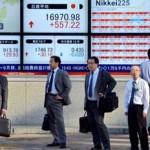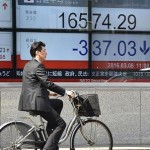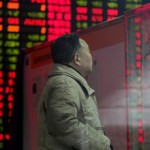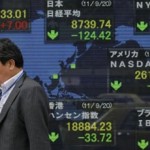China Shares Fall as Startup Shares Get Pricey
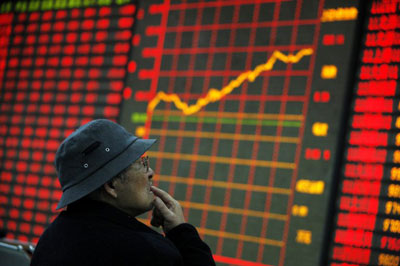
Stocks in Asia mostly fell Tuesday, with China leading the decline, as investors there sell shares in highflying startup stocks that have gotten expensive.
The Shanghai Composite Index was down 0.9% at 5019.42 following a 2% drop Monday, while the ChiNext index, a gauge of startup stocks on the Shenzhen Stock Exchange, fell more than 2.7% to as low as 3570.92 in early trade.
That represents a more than 10% drop from the ChiNext’s record close at 3982.25 on June 3. Last Friday, the Shanghai Composite Index closed at its highest level since January 2008, at 5166.35.
Analysts say investors have been selling shares in startup stocks, whose valuations have soared this year, to invest in cheaper blue chips and newly-listed companies.
“Returns [from IPOs] have been very strong and more predictable than in established stocks trading on the ChiNext. Conservative investors don’t need to go there anymore to chase returns,” though “speculative investors are likely to continue betting on those names,” said Gerry Alfonso, director of trading in mainland-listed shares at Shenwan Hongyuan Securities.
The selling in China also follows a move by the China Securities Regulatory Commission last Friday to limit so-called margin financing, the practice of using borrowed money to make bets.
Elsewhere in Asia, major markets tracked losses in the U.S. after bailout talks between Greece and its European creditors broke down. Investors also will be parsing the Federal Reserve’s statements after its two-day meeting starting Tuesday for clues as to whether the U.S. economy is strong enough to withstand a rise in interest rates later this year.
The Nikkei Stock Average and Hang Seng Index were each down 0.4%.
“Investors continue to be risk-averse in light of the apparent impasses over Greek debt, the Trans-Pacific Partnership, and what the U.S. central bank might intimate with regard to timing a rate hike,” said CLSA equity strategist Nicholas Smith, referring to a 12-member trade deal between the U.S. and Pacific Rim nations that stalled in Congress last week.
In Japan, the yen weakened against the U.S. dollar after the Bank of Japan Gov. Haruhiko Kuroda backtracked on comments last week that signaled an end to yen’s weakening path. The yen rose Tuesday afternoon to ¥ 123.81 against the U.S. dollar from around ¥ 123.35. Mr. Kuroda’s comments last week spurred the dollar to fall 1.7% against the yen in a matter of hours when he said a measure of the Japanese yen’s relative value against other currencies was unlikely to weaken further.
In Australia, the S&P ASX 200 was up 0.3%, with Insurance Australia Group Ltd. rising 5% on news of an alliance with Warren Buffett’s Berkshire Hathaway Inc.
Minutes published earlier of the Reserve Bank of Australia’s policy meeting from June 2 said that there was broad agreement on the board’s “accommodative” policy stance, though further rate cuts don’t appear to be on the table for now. RBA Gov. Glenn Stevens had said last week he was open to lowering rates further if needed.
Source: Nasdaq – China Shares Fall as Startup Shares Get Pricey










